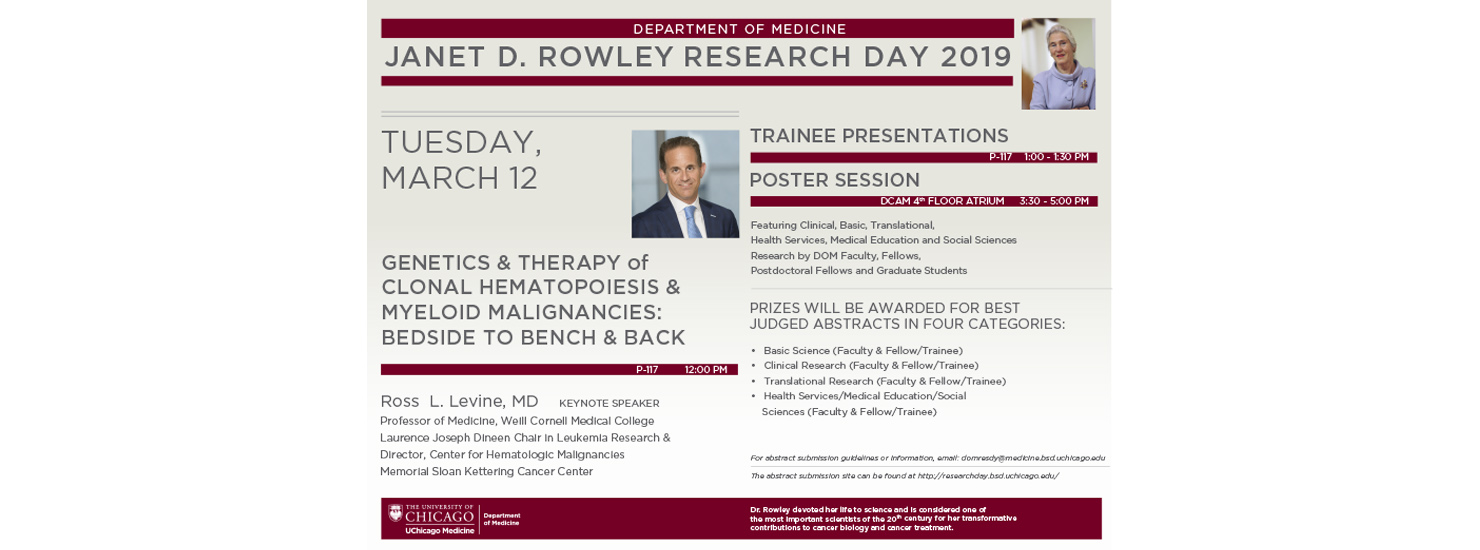March 12,2019 Janet Rowley Research Day
The Department of Medicine’s 2019 Janet D. Rowley Research Day will be held on Tuesday, March 12, 2019. Dr. Rowley devoted her life to science and is considered one of the most important scientists of the 20th century for her transformative contributions to cancer biology and cancer treatment. This year’s keynote speaker will be Ross Levine, MD, Director of the Memorial Sloan Kettering Center for Hematologic Malignancies and Laurence Joseph Dineen Chair in Leukemia Research. Dr. Levine’s talk entitled “Genetics and Therapy of Clonal Hematopoiesis and Myeloid Malignancies: Bedside to Bench and Back” will take place at Medicine Grand Rounds at noon in … Read More

